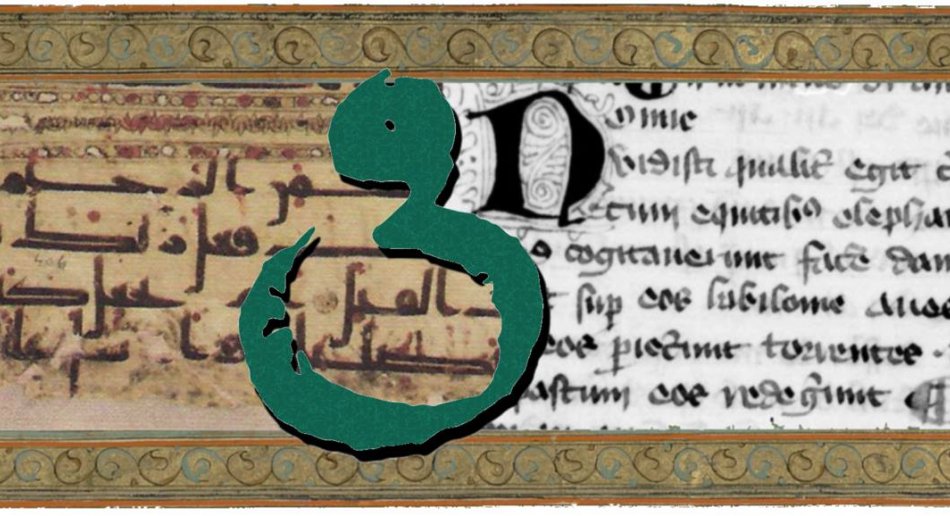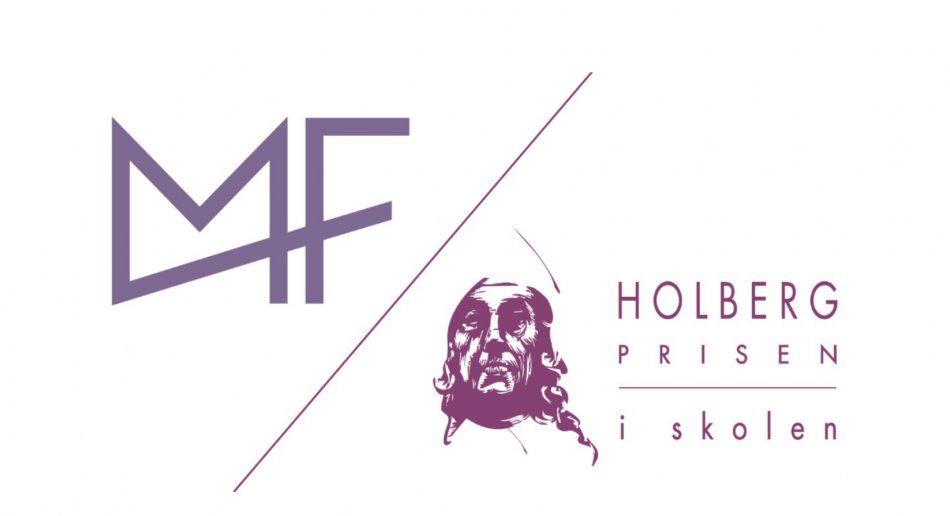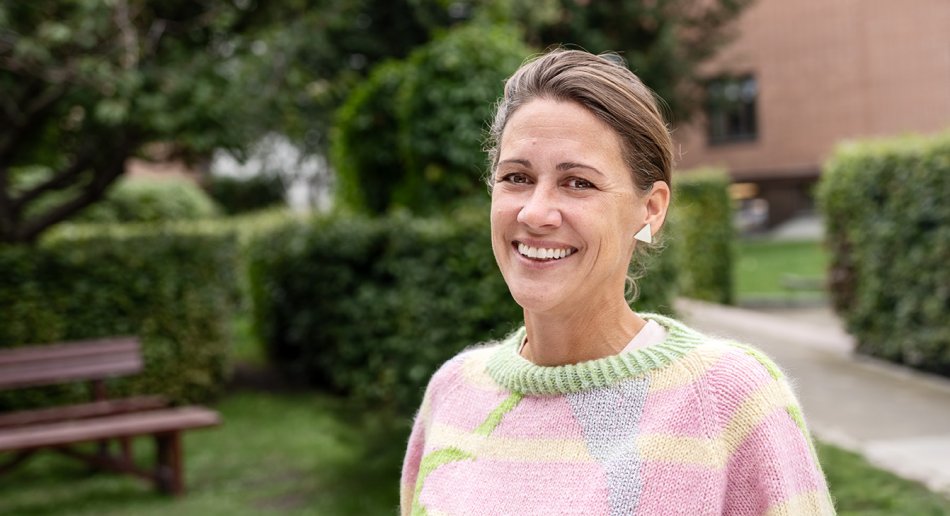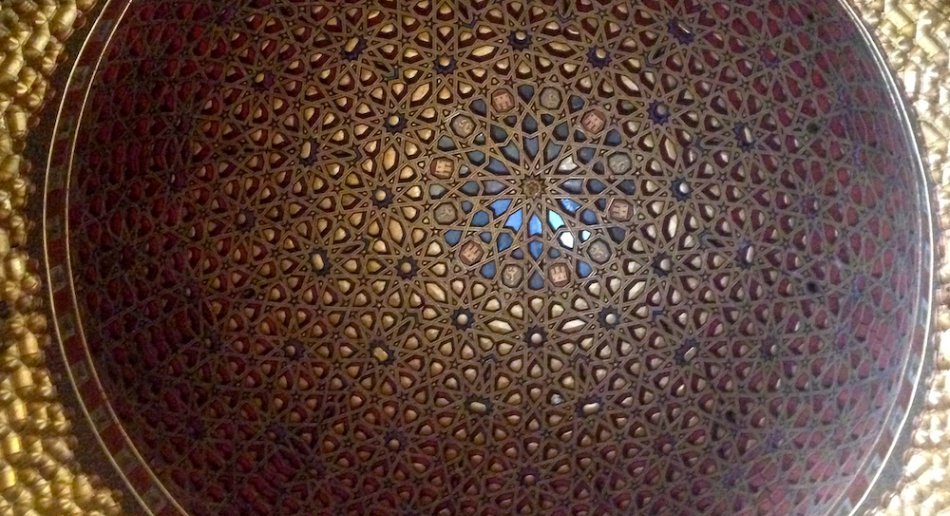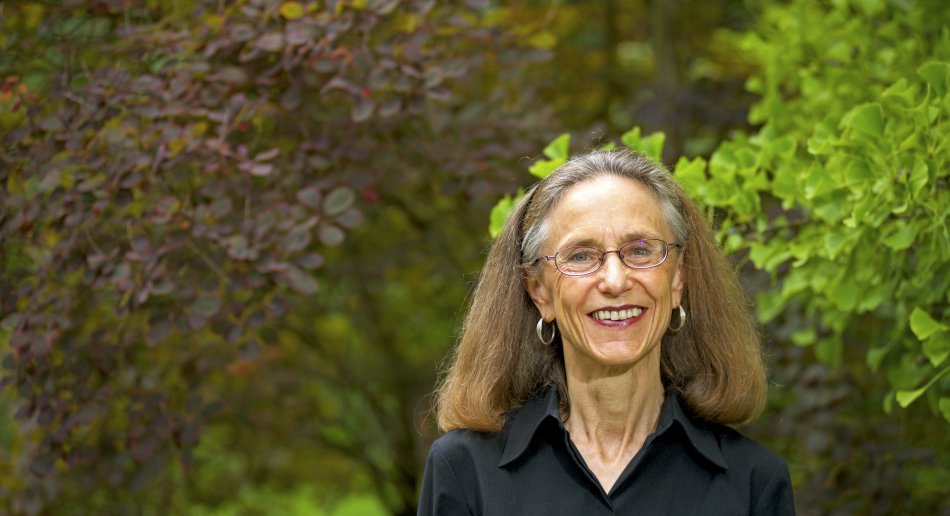
A theology for the climate emergency
- By the way we live economically, we are not serving and preserving the garden Earth. We are doing the opposite, says this year's MF CASR Global Fellow, Professor Cynthia Moe-Lobeda.
MF CASR Global Fellow
Professor Cynthia Moe-Lobeda, of the Pacific Lutheran Theological Seminary, Church Divinity School of the Pacific, and the Graduate Theological Union in Berkeley, is the 2022 MF CASR Global Fellow.
She is the Founding Director of the Center for Climate Justice and Faith which she encourages interested students and researchers at MF to visit.
Moe-Lobeda has written several books. One of them, Resisting Structural Evil: Love as Ecological-Economic Vocation (2015) is widely read, among theologians and the broader public.
During her stay she held a talk at the MF CASR lunch and the MF KOM lunch.
Professor Moe-Lobeda of the Pacific Lutheran Theological Seminary, Church Divinity School of the Pacific, and the Graduate Theological Union in Berkeley, is an expert in theological ethics, specializing in climate justice and its relationship to race, class, economic globalization, moral agency and hope. Moe-Lobeda visited MF CASR in October.
I understand you have a sabbatical year now. What are your plans for the year?
- For my sabbatical year, I'm working on a project that has been in my heart and mind for a number of years, since I published a book about seven years ago called Resisting Structural Evil, love as ecological economic vocation. It was about how people of economic and racial privilege in my country (and to a lesser extent in Europe) are living in ways that, unintentionally, are profoundly exploitative through the global economic system. The economic systems that bring our wealth are so damaging to the Earth and to the many people who are impoverished by them.
That book received a great deal of response from people in many countries, and one of the responses that I received was that people would like to have a deeper understanding of how to change the extractive, exploitative economy. Since that time, I've given talks in many states in the US and in various countries and continents, and when I am in the US I find myself frequently talking with people who are appalled that the economic system creating our wealth is so damaging all over the world. But people just don't know how to make a difference or don't think that we can change such a huge system.
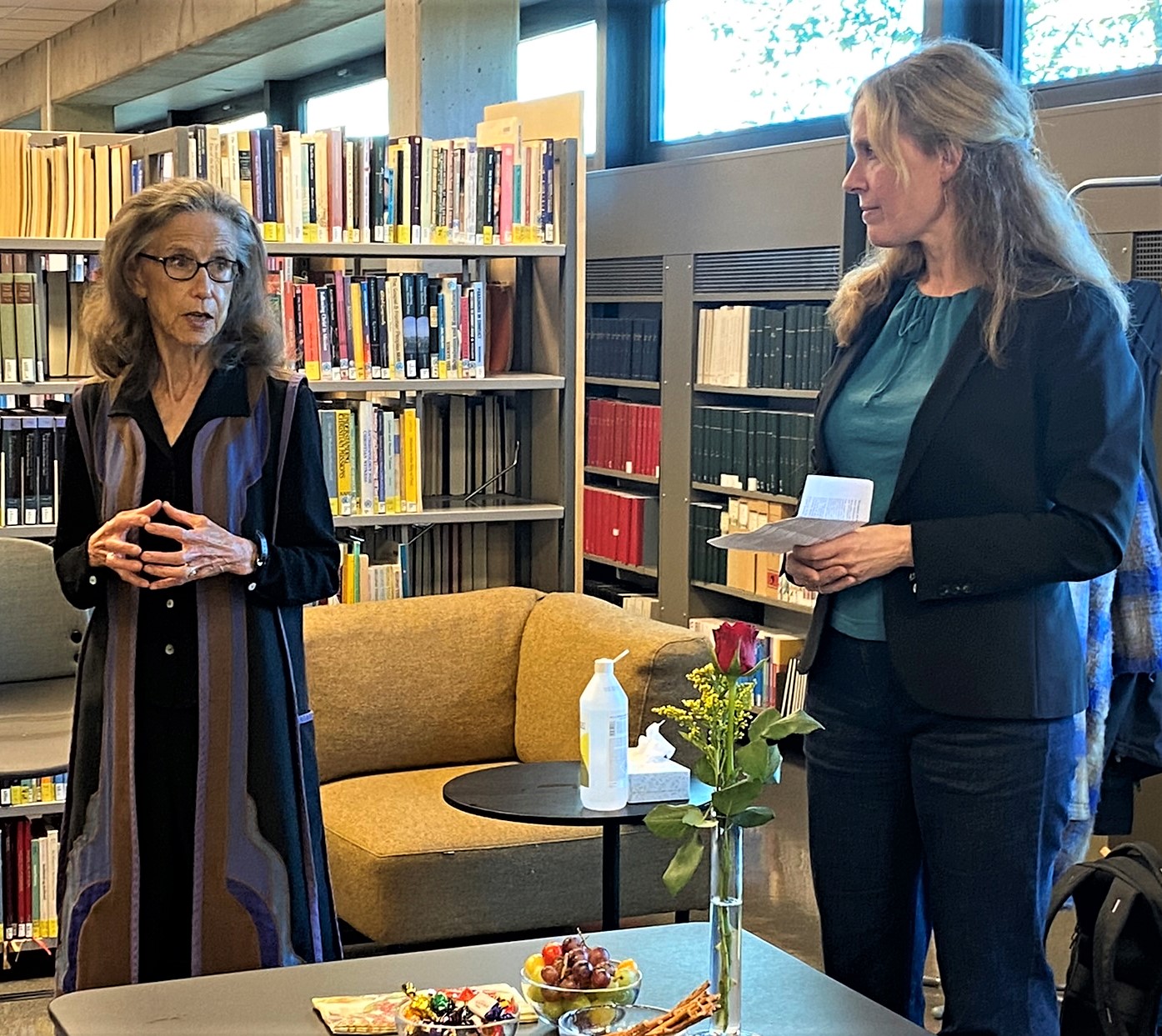
Of course, there is good reason to think that the practises, policies, and ideologies that go into neoliberal capitalism seem impenetrable or inevitable. But they are not! They were created through decisions and actions, and thus can be radically changed by other decisions and actions. My sabbatical year project is to create a series of books and accompanying on-line resources called Building a Moral Economy: Ecological, Equitable and Democratic. The subtitle of the series is Roadmaps for People of Good Courage.
I have wanted to do something like this for a long time. It really comes out of my early years in my youth when I was in the Lutheran Youth group, and I saw a film about the brutal exploitation of people in the Caribbean who were exploited by corporations to produce our cheap fruit, sugar and other things. Learning about that just blew my mind. I couldn't believe that our cheap food was causing so much pain and suffering. Since then, I've met many people from all over the world, and especially from the Global South, who have talked about the ways in which their people are exploited by the corporations that are producing our wealth. Those people just sit in my mind and in my heart, and this book project is my way of responding to that kind of knowledge.
You are building on what you wrote about in your last book Resisting Structural Evil. Would you like to tell a bit about the theology part in your project or in your research more generally?
- It's thoroughly rooted theologically for several reasons. One, is that it seems to me that there are two fundamental calls by God to human beings. One is to love your neighbour as yourself. And the other – as we read in Genesis’ first creation story – is to serve and preserve the garden Earth. By the way we live economically, we are not serving and preserving the garden Earth. We are doing the opposite. Nor are we loving neighbour as self, if we live in ways that exploit others.
The Hebrew word translated as “good” (tob or tov) really means more than good. It means a good that generates life. So God created a world that is life-furthering, capable of generating and regenerating life. Yet, with climate change, we are doing the opposite of God’s primal creating act. We are undoing Earth’s life-generating capacity.
A second theological mandate is God’s declaration heard many times in Genesis’ first creation narrative that the creation is “good.” However, the Hebrew word translated as “good” (tob or tov) really means more than good. It means a good that generates life. So God created a world that is life-furthering, capable of generating and regenerating life. Yet, with climate change, we are doing the opposite of God’s primal creating act. We are undoing Earth’s life-generating capacity. This is a rather frightening reality – that we are doing the opposite of what God does. Theologically, humans are to align our lives with God’s work, not to oppose it. Hence, it seems to me that we must change how we live in order to support rather than undermine the Earth’s capacities to generate and support life.
We must change how we live in order to support rather than undermine the Earth’s capacities to generate and support life.
Christian theologies have shaped Western culture, and by Western culture I also mean the colonising culture that came out of Europe and then was perpetuated by the United States. There is a great deal of theology undergirding the way we treat the Earth and the way we have treated others. One strong theological influence is the interpretation of the creation stories called dominion theology. It holds that human beings were created in part to have dominion over and subdue the Earth. As dominion theology came into modernity and enlightenment thought, it became all the more dangerous because it came to mean that we were meant to use the earth and “improve” it by making it productive and making it private property.
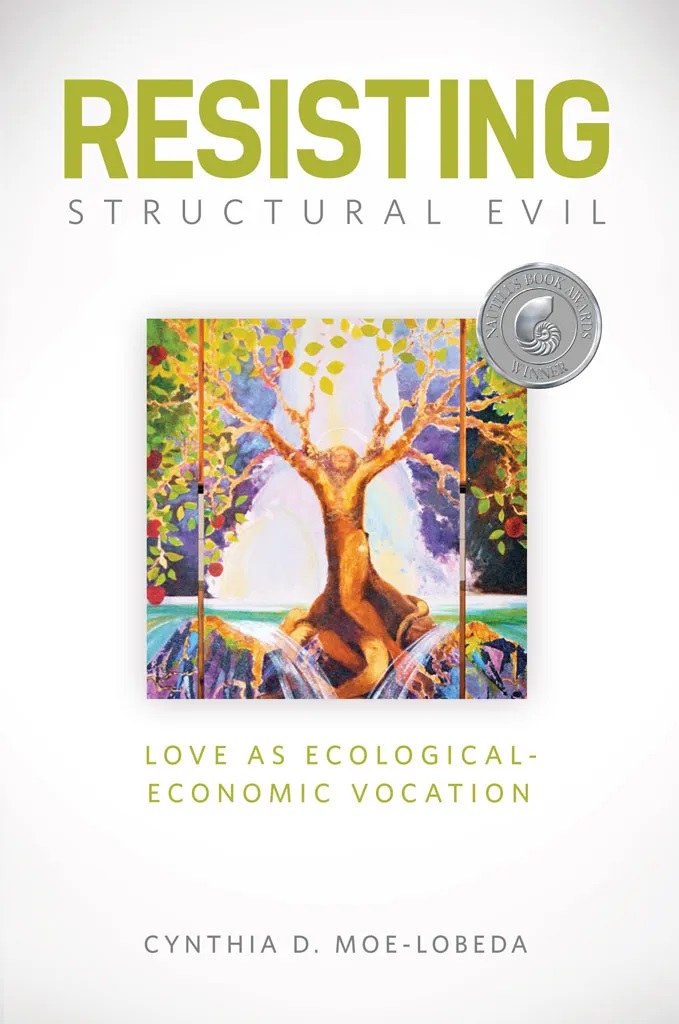
A responsibility to restore historical injustice
- When European nations began colonising Africa and the Americas (or what became known as the Americas), that colonization was grounded not only in dominion theology but also in what we call the Doctrine of Discovery which built on dominion theology. This Doctrine claimed and taught that European nations have a divinely ordained right to own and subdue lands and the people who lived on them. The Doctrine of Discovery, of course, begins in the 1400s and the 1500s with papal bulls, major documents issued by the Pope that gave white people this right. And the Doctrine of Discovery still shows its face in the mentality of white superiority and in the right to take and use other people’s lands and resources through corporate activity that claims rights to others’ water, minerals, forests, and more. In the U.S., we are very aware that this Doctrine is even present in some legal moves today. The fact that Christian theologies have theologically rationalized colonisation means that Christian theologies must come to play in undoing on-going neo-colonization. If Christian theologies have had a role in creating the climate crisis and the economic inequity crisis, then Christians are called upon to rethink those theologies.
One of the methodological linchpins of feminist theology is that we have three tasks in theology. One is to critique where beliefs and practices of the church have served the causes of death and destruction rather than life and liberation. That is what we do, for instance, with dominion theology or patriarchal theology.
To think of God being within the tiniest leaf, as well as above and beyond all, is a very different way to relate to a tree than to think of a tree as just a resource there to be chopped down by human beings to make a profit.
A second task is to retrieve some of the hidden, ignored, or repressed voices in Christian traditions that could serve life-giving purposes today. There are, for example, many voices from Christian traditions that have been profoundly earth-honouring but that have been lost to dominant theologies. This task of retrieval also includes listening to parts of well-known voices that have been relatively ignored. An example of this would be Martin Luther. Elements of Luther are incredibly Earth-honouring. He talked about God dwelling within the animals and the elements, and about God “flowing and pouring through all things,” “even the tiniest leaf.” To think of God being within the tiniest leaf, as well as above and beyond all, is a very different way to relate to a tree than to think of a tree as just a resource there to be chopped down by human beings to make a profit. Yet these aspects of Luther are not commonly read or taught, at least in the U.S. Nor are Luther’s economic ethics condemning aspects of the rising market economy (that would become capitalism) that hurt the poor. It is very useful to “retrieve” these relatively ignored aspects of Luther’s theology.
Re-reading and re-interpretation of the Bible
- The power of retrieval is seen also in theologies of salvation. Much dominant theology has said that salvation is about individuals being saved for life after death. Yet there were many beliefs about salvation in the early church, and that was just one of them. Other understandings of salvation could help us in honouring the earth and in the work of economic justice. One of my favourite theologians who has been ignored in dominant streams of Christianity is a second century theologian, Irenaeus of Lyons. He has taught me so much! For Irenaeus the entire cosmos – not just human beings – is being saved by God. Other theologies of salvation hold that God’s project of salvation includes liberation for oppressed people now, and that human beings are called to participate in that project of liberation.
Then the third task of theology involves using the critique and retrieval to reconstruct or rebuild theologies that reflect the profound and gracious love of God in the world today. Critique, retrieval and reconstruction are part of what we're about in eco-theology and eco-feminist theology. An example is the movement in the last decade to reread and reinterpret the Bible from perspectives of the Earth. This means looking for where the other-than-human parts of creation have agency, voice, and engagement with God or with humans, and especially where they are messengers of God.
I was wondering since you're working and living in the US, and from a Norwegian perspective, there has been a lot of writing and talking about the polarisation of the US. What's your experience of teaching and writing and talking about these subjects in the US today?
- Well, that's a huge question. People are enormously polarised now. For example, many people would fully agree with what I've said in talking with you. Others would be unfamiliar with these perspectives but would welcome them. Yet many other people would see these ideas as heretical, to be dismissed or even prohibited. It seems to me that now in the U.S. it is very important that people talk across lines of difference or polarization, and that doesn't happen much. People get stuck in their own circles of people who think like they do. One of the things I'm trying to understand is how we can make more places and spaces just to talk across differences. And I don't mean for the purpose of debates. I mean just to build relationships. To build human relationships so that people know that folks who think completely differently from them are decent human beings and human beings with feelings, struggles, families and loved ones. I don't know what all the answers are for this country (the U.S.) right now, but I'm quite sure that one of them is building relationships across lines of huge difference. I'm not talking just about racial and economic differences. I'm talking about ideological and theological differences. I think that relationship building is one path toward some kind of healing.
The climate crisis and polarisation, it is very huge problems, and it can as a person, an organization, a Church, or a school, be hard to know how to talk about this, but also not just fall into despair and think that there is nothing we can do. So what can we do, both as an individual and as an organization?
- We can work for change on three levels of our being to counter the climate crisis. One of them is behaviours or lifestyles. By this I mean what we eat, what we wear, the way we use energy, how we heat our homes, what we consume, how we transport ourselves, and such. But that alone is far from adequate. A second level is social structures – being involved in advocacy and other efforts to change the economic, political, and cultural systems of which we are a part. The third level is our consciousness, our thinking, our ideas, our assumptions about reality, our assumptions about who human beings are, et cetera.
For making change happen on those three levels, I like to talk about ten different “fingers on the hands of social change,” by which I mean ten different forms of action. One of them, for example, I call “Change the rules,” which is public policy advocacy aimed at changing city, state or provincial, national, and international public policies. We have many congregations that are called “advocating congregations,” and they are involved in public policy work. A second “finger” is what we call “Move the money.” This refers to things like divestment from fossil fuels and exploitative companies and reinvesting instead in renewable energies and companies that seek to build equity and justice. Divesting and reinvesting pertains to one's own savings accounts or banking, but also to institutions like the Church of Norway or the ELCA in the U.S. and to governments. “Move the money” also includes the global movement for tax justice.
What, for example, do our liturgies tell us about who we are, what the earth is, what spaces are sacred, what we are called to do with our lives, and how God speaks?
Another of the ten “fingers” is called “Build the new” which means building or supporting businesses and agriculture that are committed to ecological sustainability and economic equity. These are largely small scale and local or regional rather than global corporations, and may be worker-owned. All over the world there are new business, agricultural, and finance models. “Resist the bad,” which includes demonstrations and raising public awareness or stopping large-scale exploitative companies is a fourth “finger.” The Lutheran Bishop in Palestine called this “evangelical defiance.” A fifth is “Change the story,” meaning to rethink the large meta-narratives that shape our lives.
That would be where theology and liturgy come in. What, for example, do our liturgies tell us about who we are, what the earth is, what spaces are sacred, what we are called to do with our lives, and how God speaks? Do our liturgies tell us that sacred spaces are primarily churches, rather than helping us to understand that sacred space is also in the fields, the rivers, and the mountains? Do our liturgies tell us that God speaks through the book of the Bible and people only, or do they tell us that God speaks also through the winds, waters, and other none-human parts of creation? Yet another “finger” is “live lightly.” This means changing lifestyle practises, basically to use less energy and reduce greenhouse gas emissions.
Those are six very different but related modes of action. All are interdependent. Working together, they become powerful tools for responding to the climate emergency.
Recent news Research news
